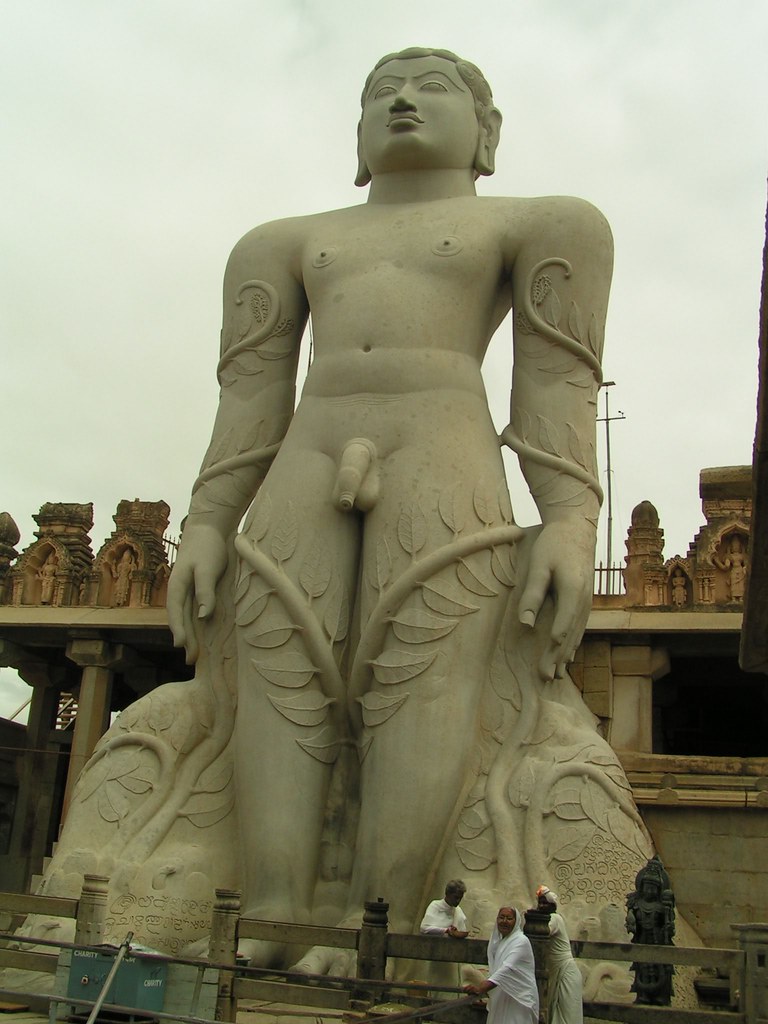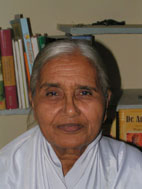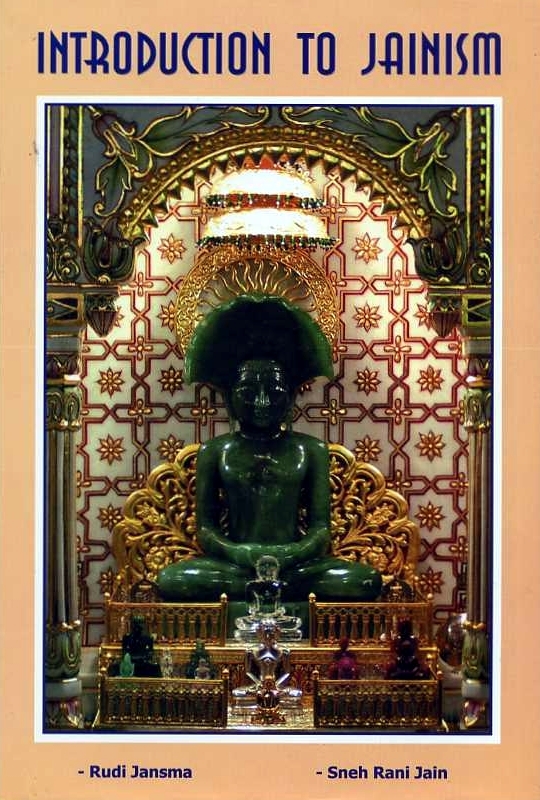Bāhubali was one of the 99 or 101 sons of Rishabha, the first Tīrthamkara, and also he had two sisters. All sons but one, and his daughter Brahmī were begotten by one wife, and one other son, Bāhubali and her daughter Sundarī by his other wife. According to Jain calculations this must have been millions of years ago. Bāhubali was no ordinary son. Even at the time of conception his mother saw in a dream an enormous white elephant enter her womb – and that is a very good sign. It indicated that she would bear a strong, healthy and courageous son. And is what happened. He appeared to be a prodigy in all respects. The oldest of all the sons, born to her sister, was Bharata. When father Rishabha withdrew from his worldly functions and began to live an isolated spiritual life, all his sons, including his favorite son Bāhubali, inherited a kingdom, but Bharata, being the oldest, received the greater part. Bharata was given an invincible weapon, a new invention called chakraratna, literally a discus-jewel. He who owns this weapon may call himself the lord of the universe, because the gods themselves protect this weapon. With it he conquered all domains of ancient India, because nobody could resist him. His pride grew, and he was unable to bear any defeat. But when the king returned to the gates of his city after his campaign, the chakra refused to enter. Sages conferred as to why this could be so, and concluded that he had not yet conquered everyone who could be conquered: namely all his brothers. All but one of them surrendered immediately and their kingdoms now belonged to him alone. The exception was Bāhubali. A war between the armies of Bāhubali and Bharata seemed unavoidable. After long deliberation both gentlemen decided that it was very bad to sacrifice so many human lives and cause so much human misery in order to settle a purely personal conflict. Finally they decided in a duel. Bharata was full of self-confidence. But Bāhubali was much bigger and stronger than he was. The first challenge was to look each other in the eyes until one of them would wink. But because Bāhubali was much bigger than his powerful brother he had to glance down only, whereas Bharata had to stare upward. Bāhubali won easily. The second challenge was to knock each other over by splashing water at each other. Once again, of course, the big and strong Bāhubali won. The final challenge was a wrestling match between the two men with their muscular arms. But Bharata was already frustrated and extremely angry because it was the first time he had had to face defeat; he saw his power and his enormous empire falling to pieces, all because of his younger brother. After some wrestling Bāhubali held Bharata above his head and he could have smashed him down and killed him. He would have inherited the whole world. But then he thought again. How could he humiliate his elder brother like this!? He put Bharata on the ground and gave him his whole empire. Bāhubali himself went to an isolated region on Mount Podanapur. There he gave up all that was of the world and went into meditation. He stood naked, day and night, in heat and cold, without drinking and without food or sleep, in perfect concentration, remaining motionless on one spot for one whole year. Lianas grew around his body up to his ears; and those lianas are characteristic of all statues of Bāhubali (photo 5).
 Bāhubali on the Vindhyagiri at Śravana Belagola, granite, 10th centutry
Bāhubali on the Vindhyagiri at Śravana Belagola, granite, 10th centutry
Every weakness or illusion a man can have he overcame. His body was no longer subject to gravity and was floating above the ground. Every realm of true knowledge irradiated his mind. Even the celestial gods asked him to bless them and guide them. His soul sought unification with paramātma, the super-soul and by this effort answers were given to still unanswered questions. Bharata and both his sisters came to him to see the miracle he was with their own eyes. At last he reached the highest state – omniscience and also liberation of the soul –even earlier than his father Rishabha. Bāhubali thereby became the first in the present great cycle of joy and suffering to reach perfect enlightenment. His father too, and later Bharata, reached this state, but Bāhubali will for ever be the great example for the spiritual endeavors of the Jains.
To one question the monks have never given me a satisfactory answer.. The most outstanding feature of the pure, liberated soul is omniscience. Nothing in the universe is unknowable for the liberated soul. When I reach omniscience, I will no doubt also know the suffering of all beings, and the causes of their suffering as well as the possible solution. How could I ever experience peace and bliss if I perceive all the suffering of others and do nothing? Should I understand that on reaching omniscience compassion is dead? Their Jain’s answer is: “No! Compassion is not dead! But no one, and nothing but their own efforts, can save the suffering souls. Just as no god could help me on my path of purification, and I can only progress through my own effort, this applies equally to everyone else. Compassion has its value for worldly souls only. And even then even those suffering souls of a human or even a god will not receive help if their karma does not allow for it.” Personally, rather than withdrawing into a state of lofty bliss and leave things in a mess, I would rather return incarnation after incarnation to the earth to do whatever little or much I can – accepting the accompanying problems for what they are, even though the earth with its life-forms may continue to exist for millions or billions of years. Would there not be something very deeply hidden in the consciousness of that cosmic bliss which is troubled, and whispers: “You are neglecting your duty: see how billions of creatures are struggling – you are abandoning, whereas you one of the very few who could do something for them.” Will there never be a new universe in which my soul will be pervaded by regret, and the desire to help will yet be cultivated?
 Dr. Sneh Rani Jain
Dr. Sneh Rani Jain
 Publisher:
Publisher: